Airbnb Travel Notebooks

The above brief was given during the Airbnb + Adobe Creative Jam held during April 2020 for US, UK and Canadian students. Unfortunately the competition was not open to Australian students, meaning I could not participate. However, I thought it would work as a good practice brief that I could do in my own time as a way to really delve into the UX design process through research, ideation and testing.
Research
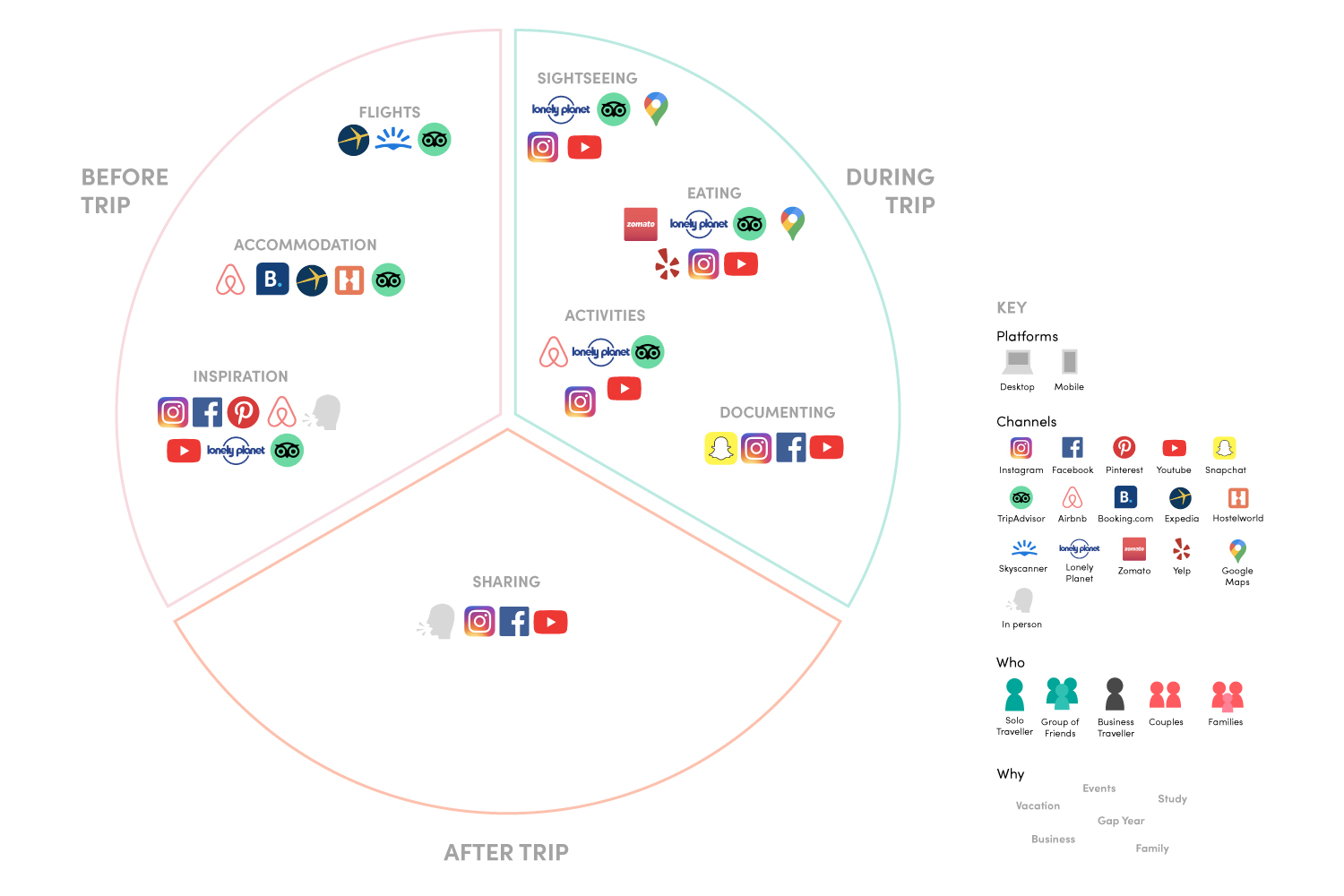
To start, I created an ecosystem map to brainstorm the Who, What, When, Why, and How of travelling. I based it off of what my friends and I do when we travel and what apps we typically use. This helped me decide on what areas to focus on when conducting user research.
I decided to create surveys as they would be a quick, easy and effective method to gather data during lockdown. I asked 10 of my family and friends (ages ranging from 20 - 64 who had all travelled at least once in the last year) to fill out a survey regarding their travel experiences, with questions particularly focusing on how they plan and document their trips.


Through the survey, I discovered the motivations and pain points associated with documenting trips. The survey revealed several insights:
 I also analysed other travel documenting apps such as Trips by Lonely Planet, Tripcast and Polarsteps to see what they did well and what could be improved upon. Some of their strengths included easy to use content editors and the ability to post real time updates, however I found that all of their community features could be improved. I created a persona based on the insights found from the research. This would help me focus on designing for a target user and their specific needs.
I also analysed other travel documenting apps such as Trips by Lonely Planet, Tripcast and Polarsteps to see what they did well and what could be improved upon. Some of their strengths included easy to use content editors and the ability to post real time updates, however I found that all of their community features could be improved. I created a persona based on the insights found from the research. This would help me focus on designing for a target user and their specific needs.

Ideation
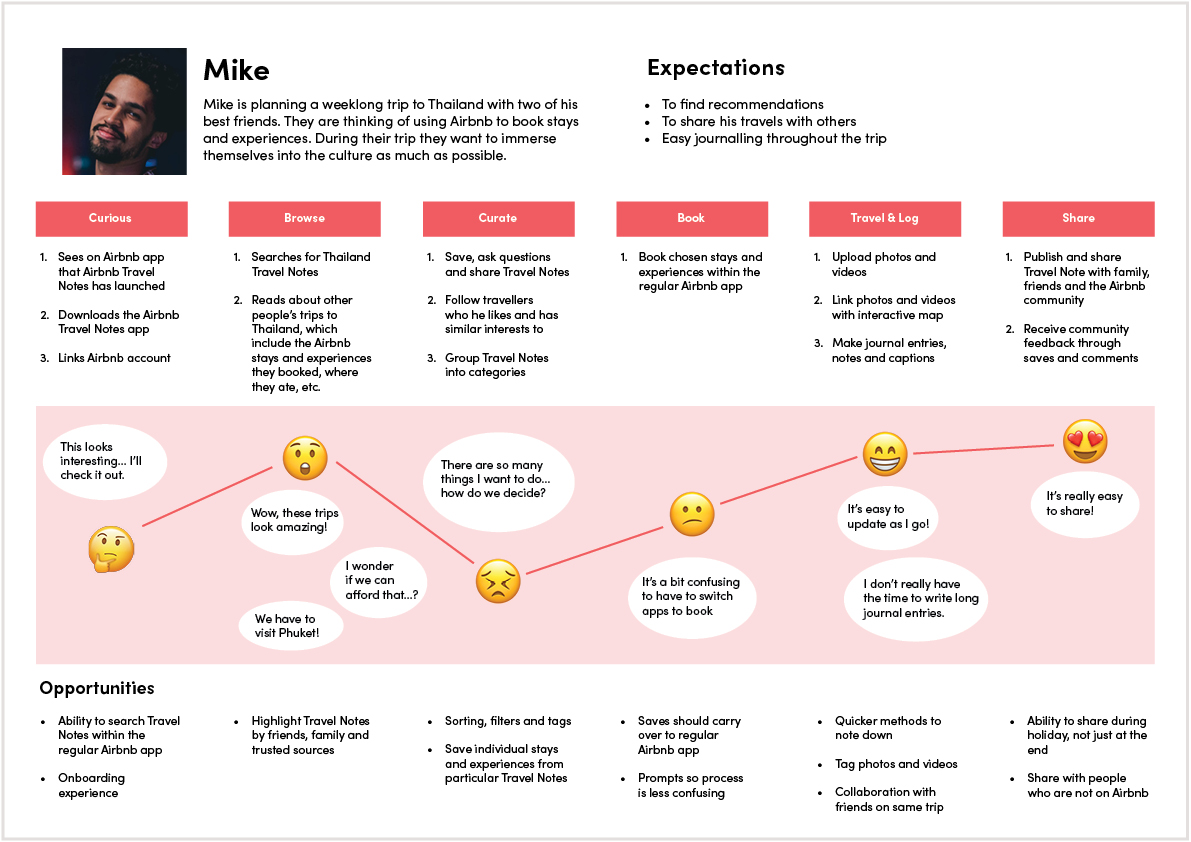 Based on the persona, I created a user journey map to imagine how the user would interact with the app in order to solve their needs.This is where I came up with the idea of having a "travel notebook" style app, so travellers could quickly collaborate on notes and share them with others. I iterated on the user journey by drafting quick storyboards.
Based on the persona, I created a user journey map to imagine how the user would interact with the app in order to solve their needs.This is where I came up with the idea of having a "travel notebook" style app, so travellers could quickly collaborate on notes and share them with others. I iterated on the user journey by drafting quick storyboards.
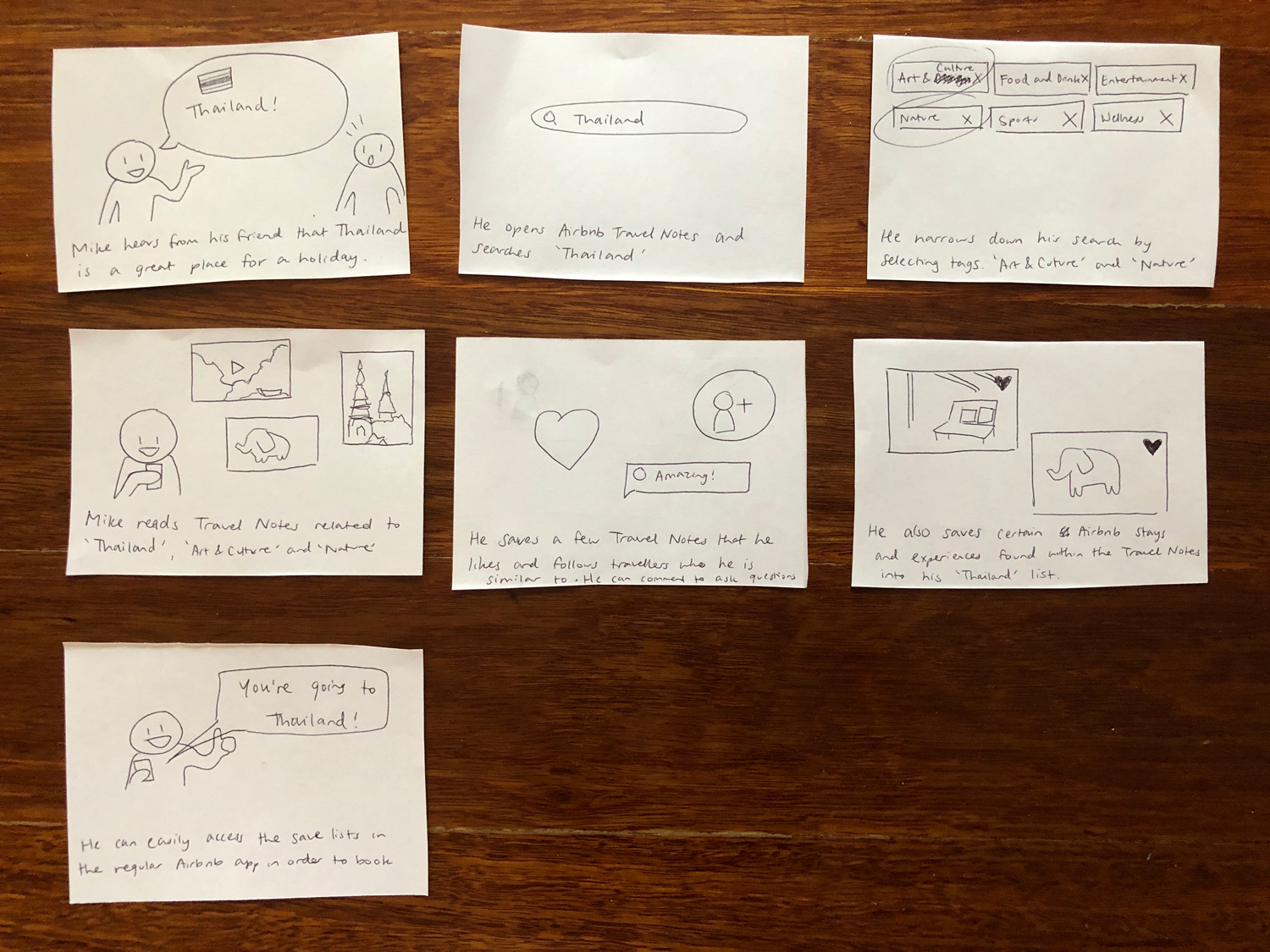
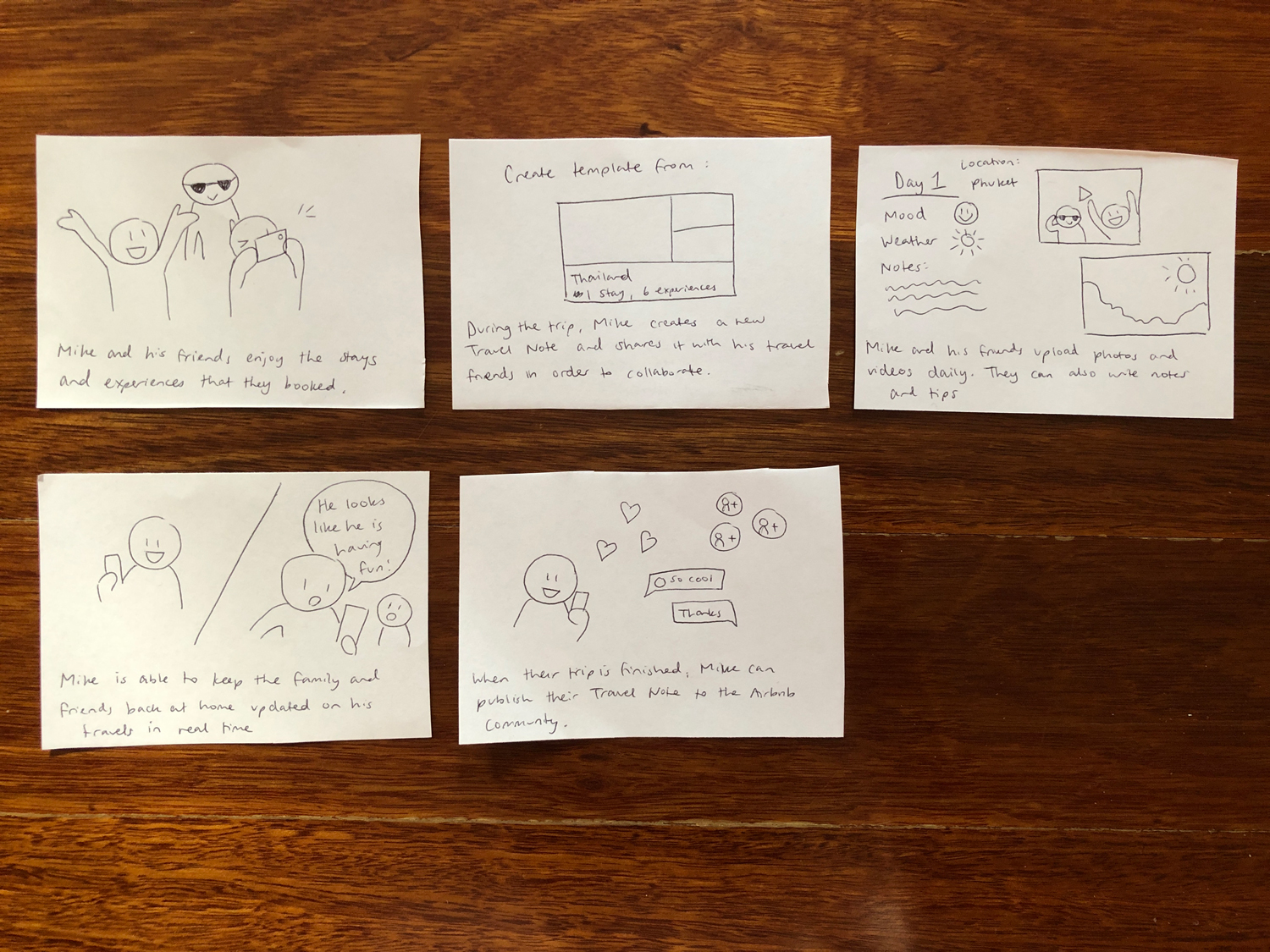
I was then able to design a rough user flow for the app. To test it out, I created a tree test where I asked 3 users to find particular features within the app's information architecture in order to do tasks such as view, save, write and publish travel notebooks. The test results led me to rename certain menu items for clarity (e.g. changing Create Travel Notes to Write) and to reorganise certain features so that they were easier to find.
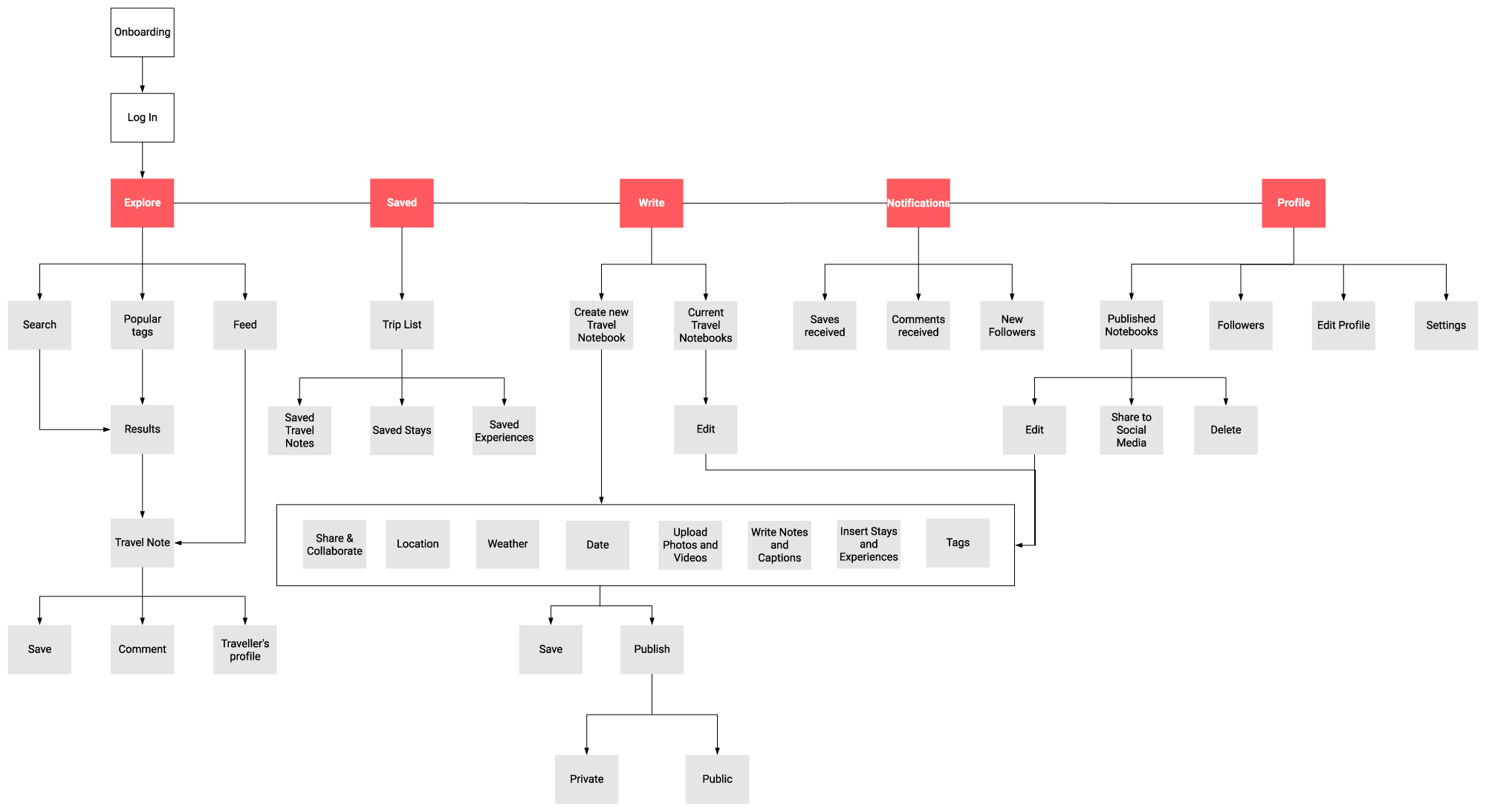
I drew several layouts for each feature to refine and develop the layout.
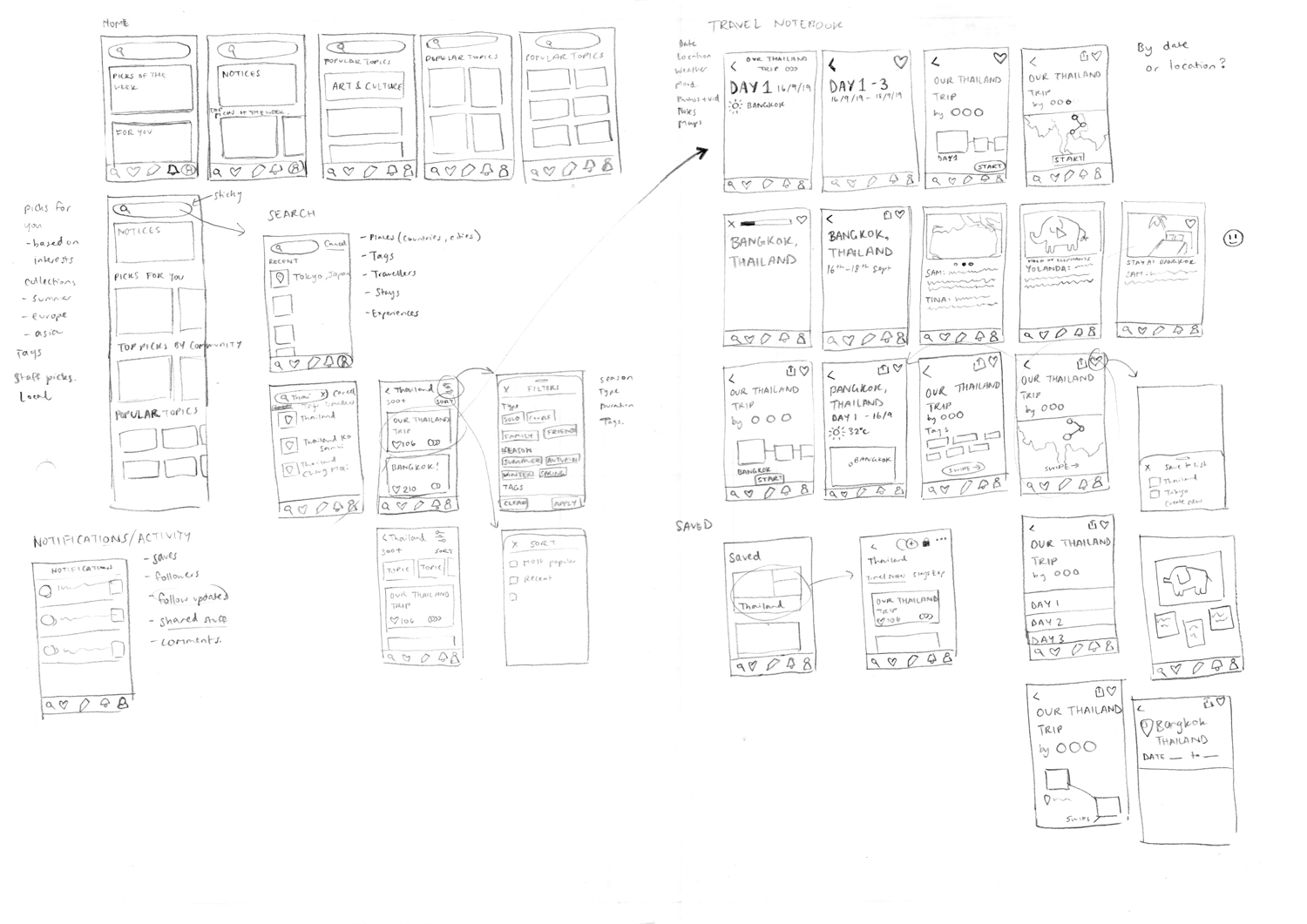

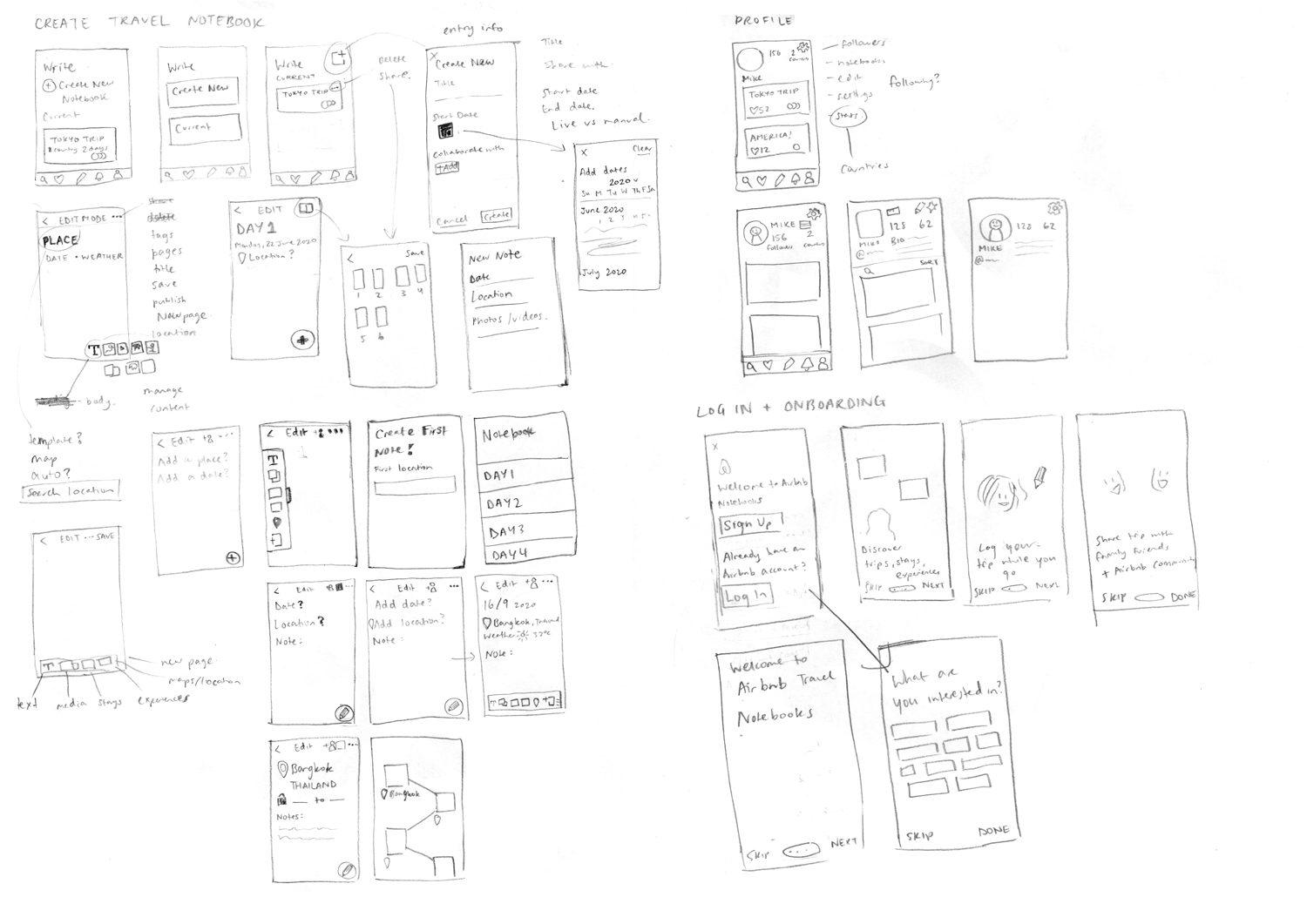
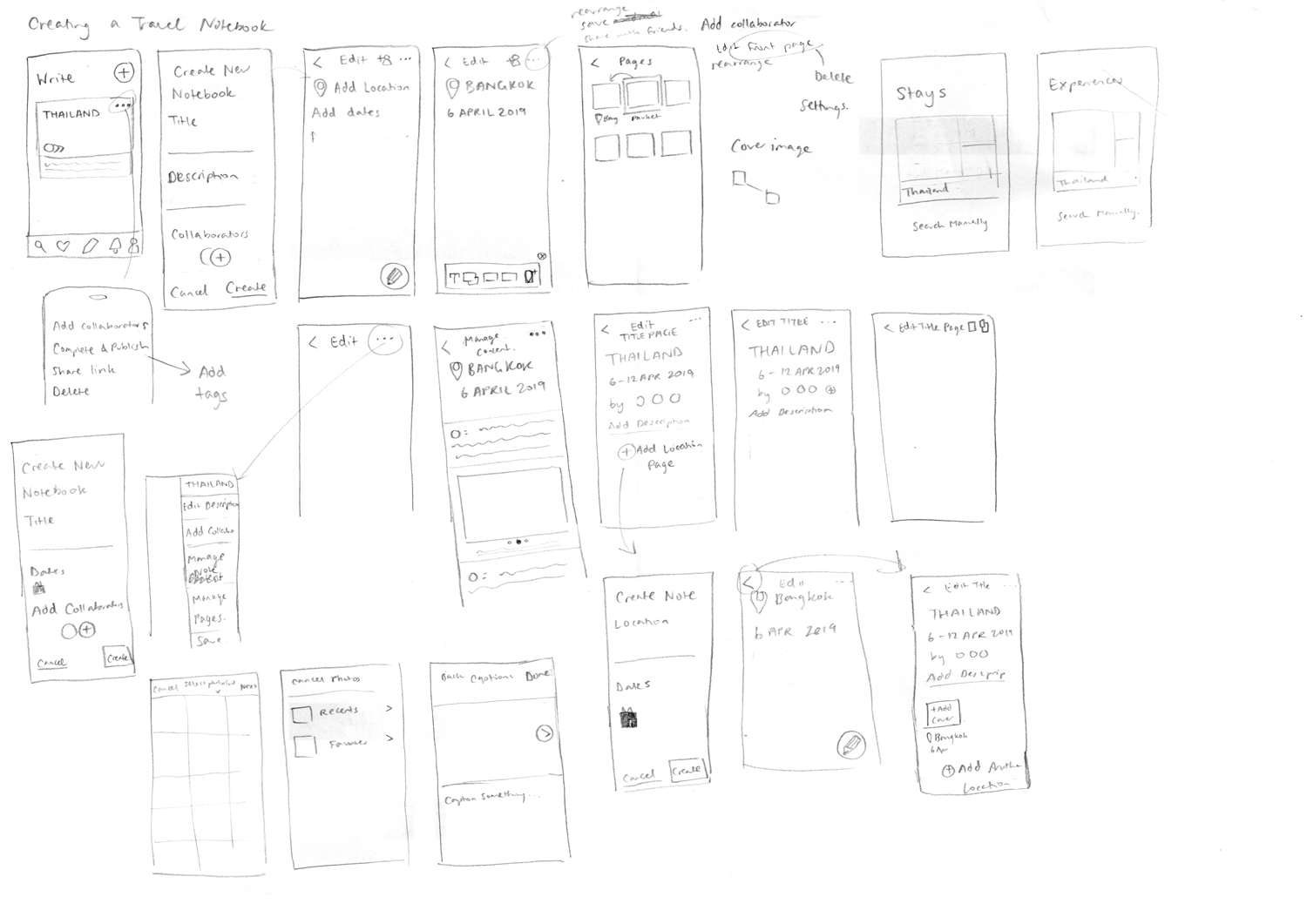
Testing
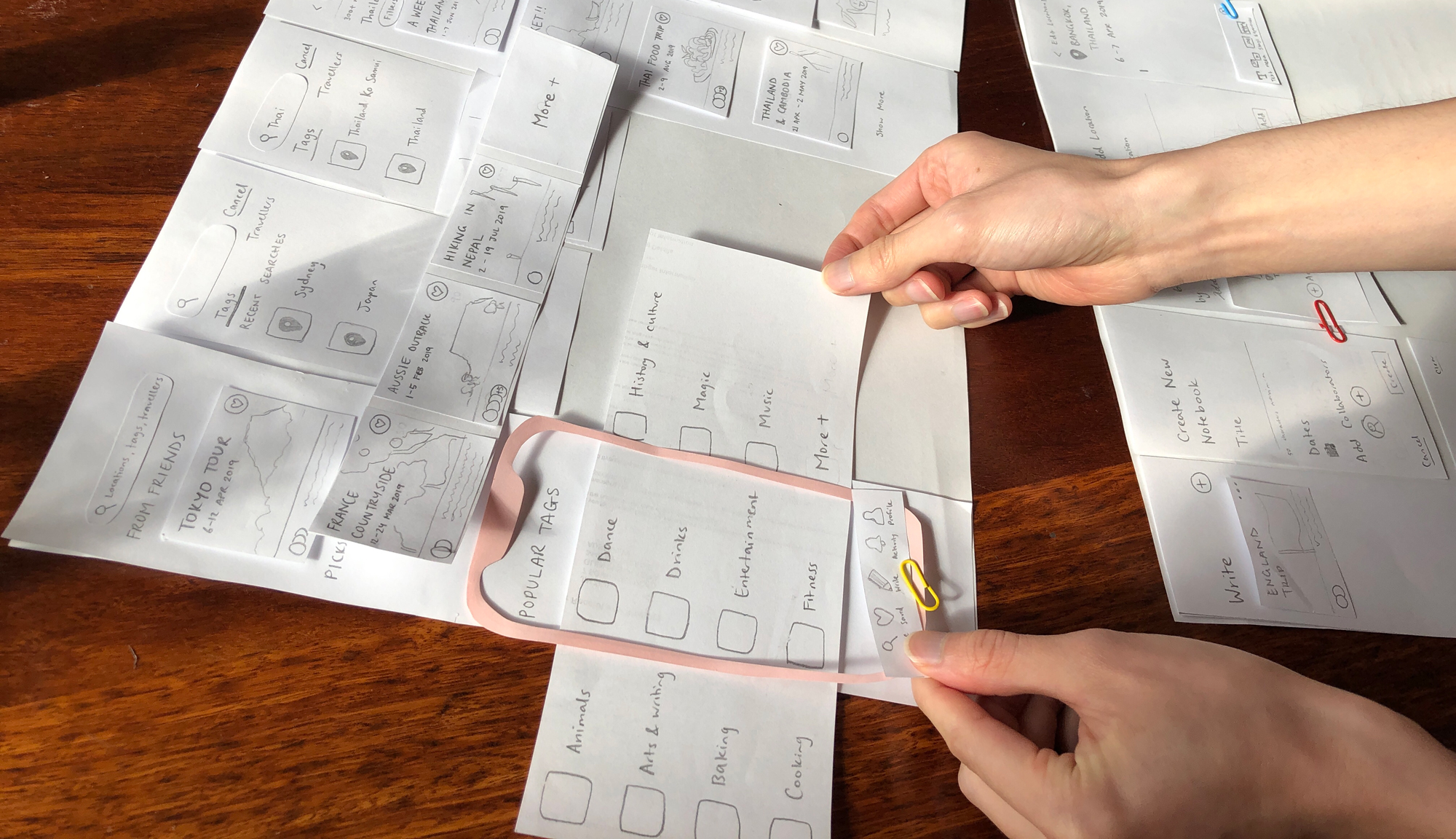 Sketching allowed me to try out as many layouts as possible in a fairly short amount of time. I then converted the layouts to paper prototypes and tested out certain interactions with target users. This led to improvements such as making the save button more obvious and adding the ability to reorder pages and their content.
Sketching allowed me to try out as many layouts as possible in a fairly short amount of time. I then converted the layouts to paper prototypes and tested out certain interactions with target users. This led to improvements such as making the save button more obvious and adding the ability to reorder pages and their content.
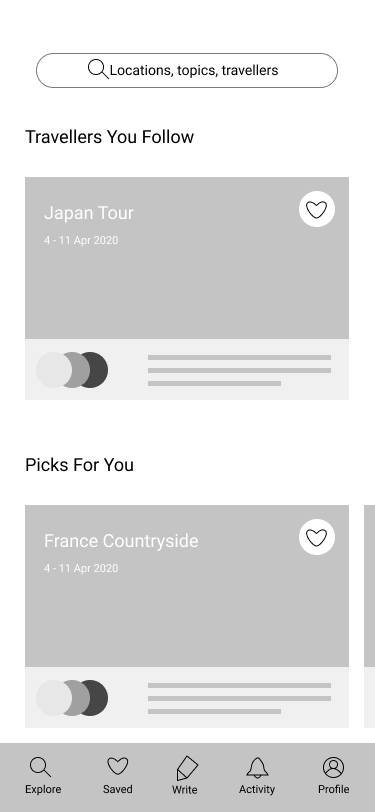
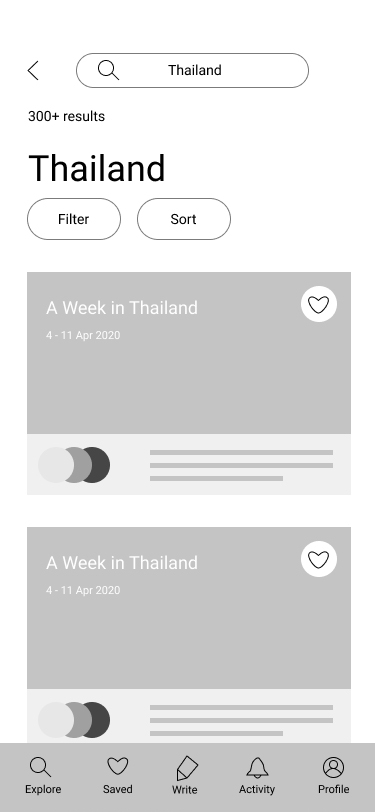
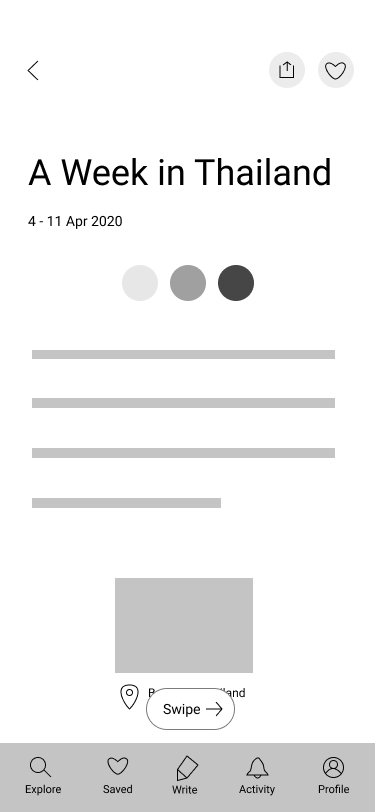
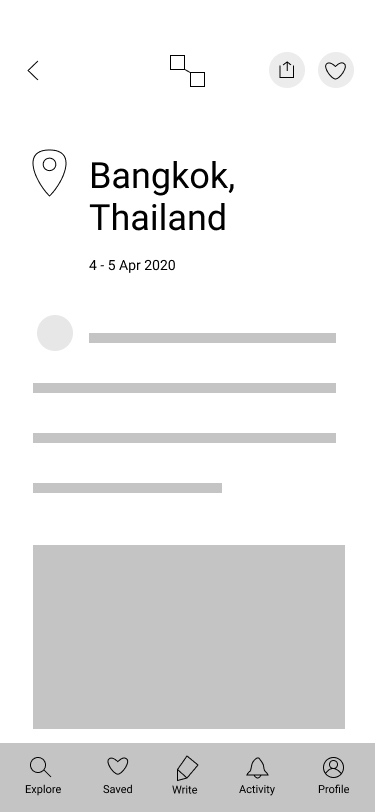
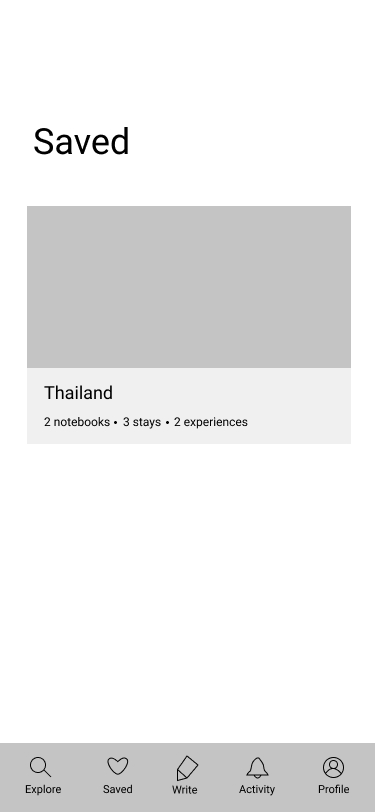
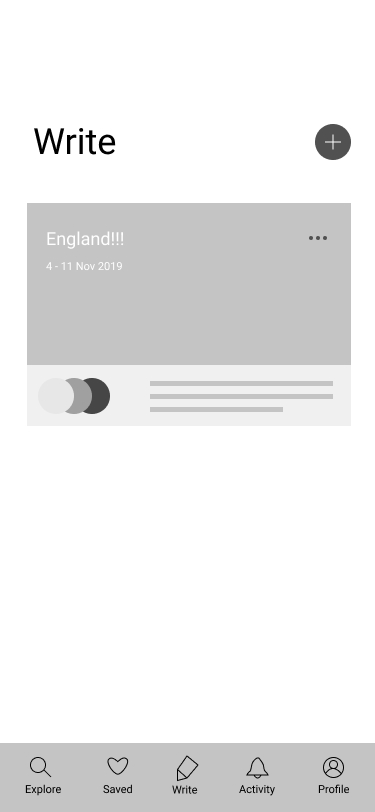
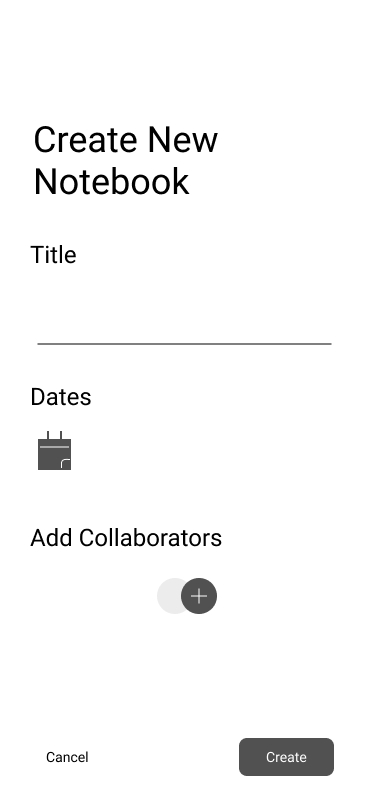
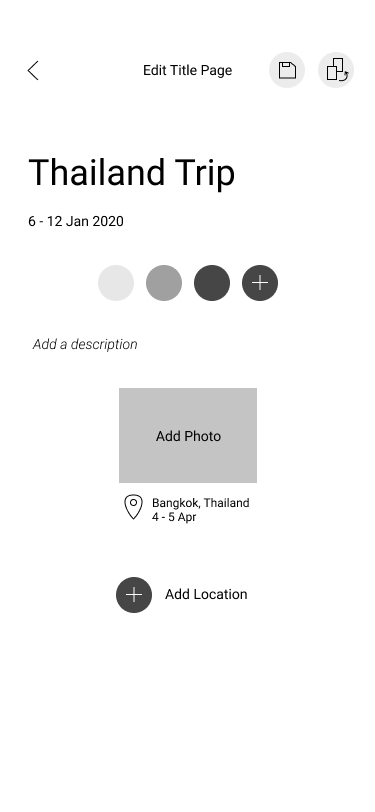
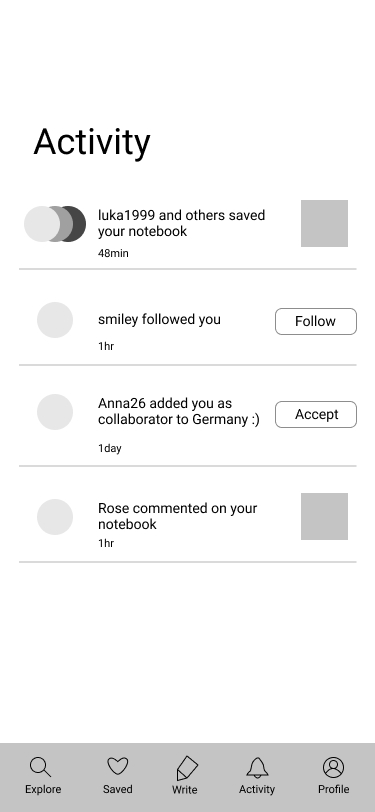

I created a mid-fidelity prototype using Figma and brought it up on a phone for users to test out. User testing at this stage gave me several insights, such as changing the look for particular icons and adding certain swiping motions within the notebooks to create a more natural interaction. With the user feedback in mind, I continued iterating in order to create a more polished prototype. I followed Airbnb's design system for consistency.
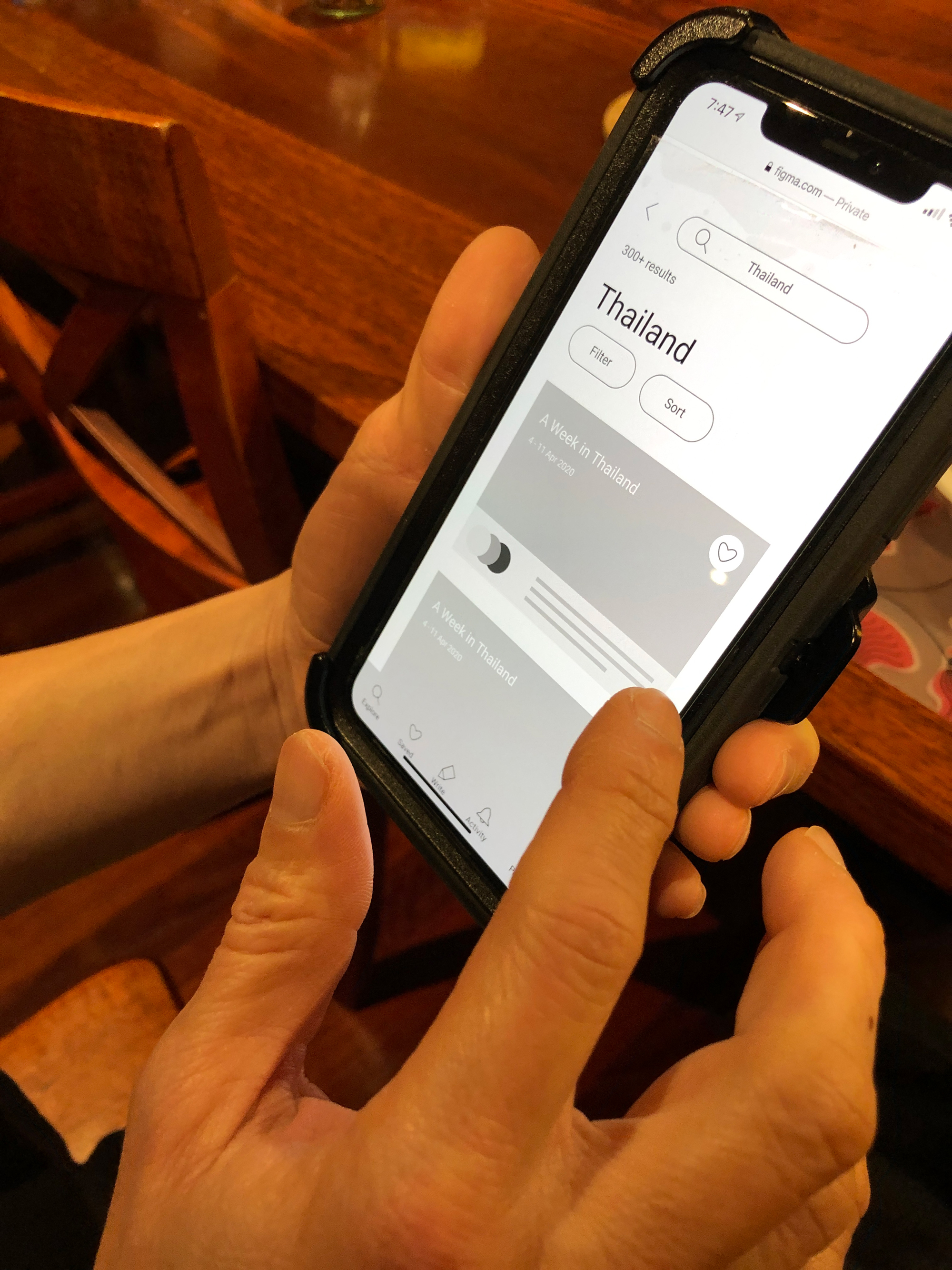
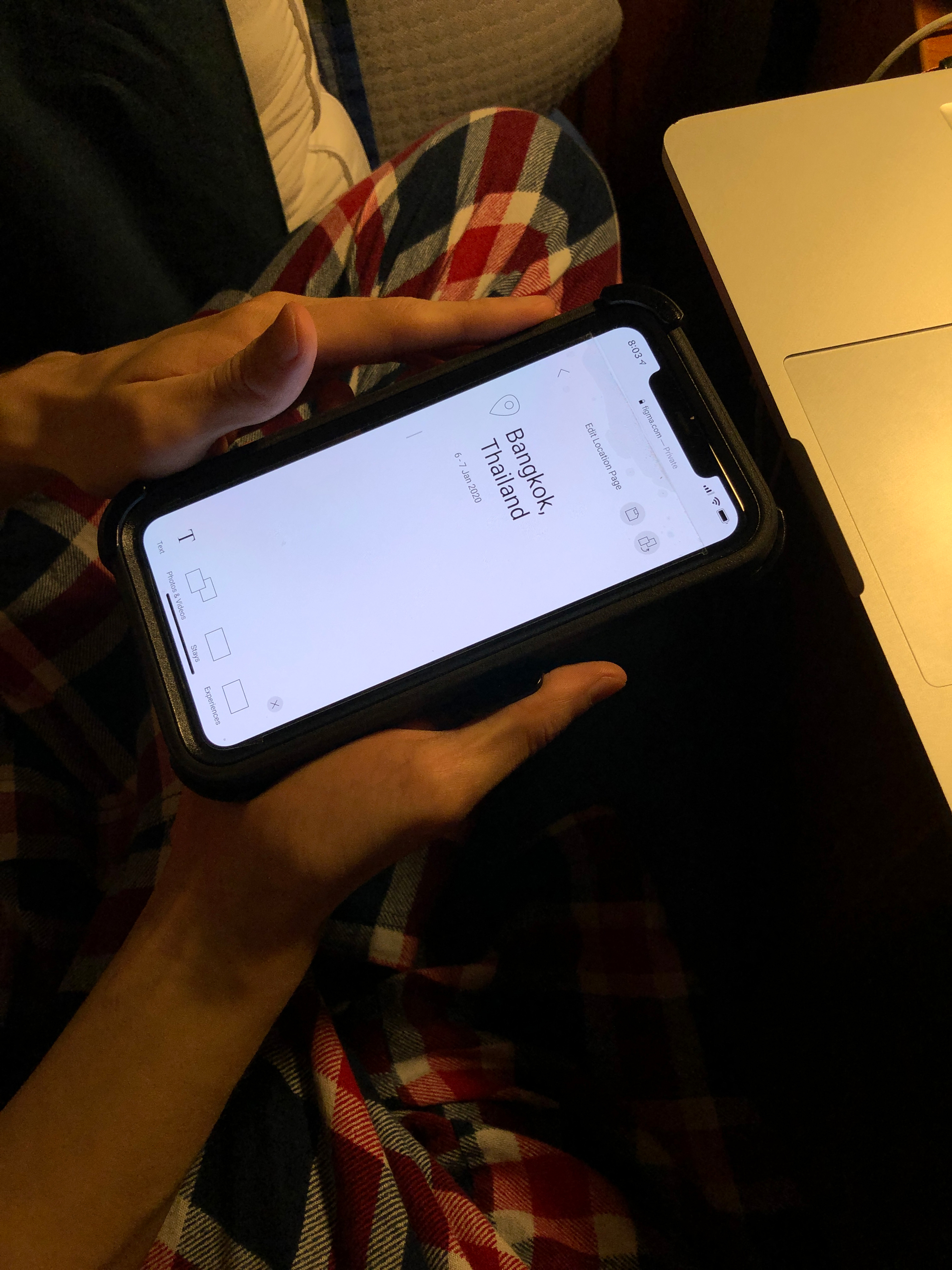
Final Prototype
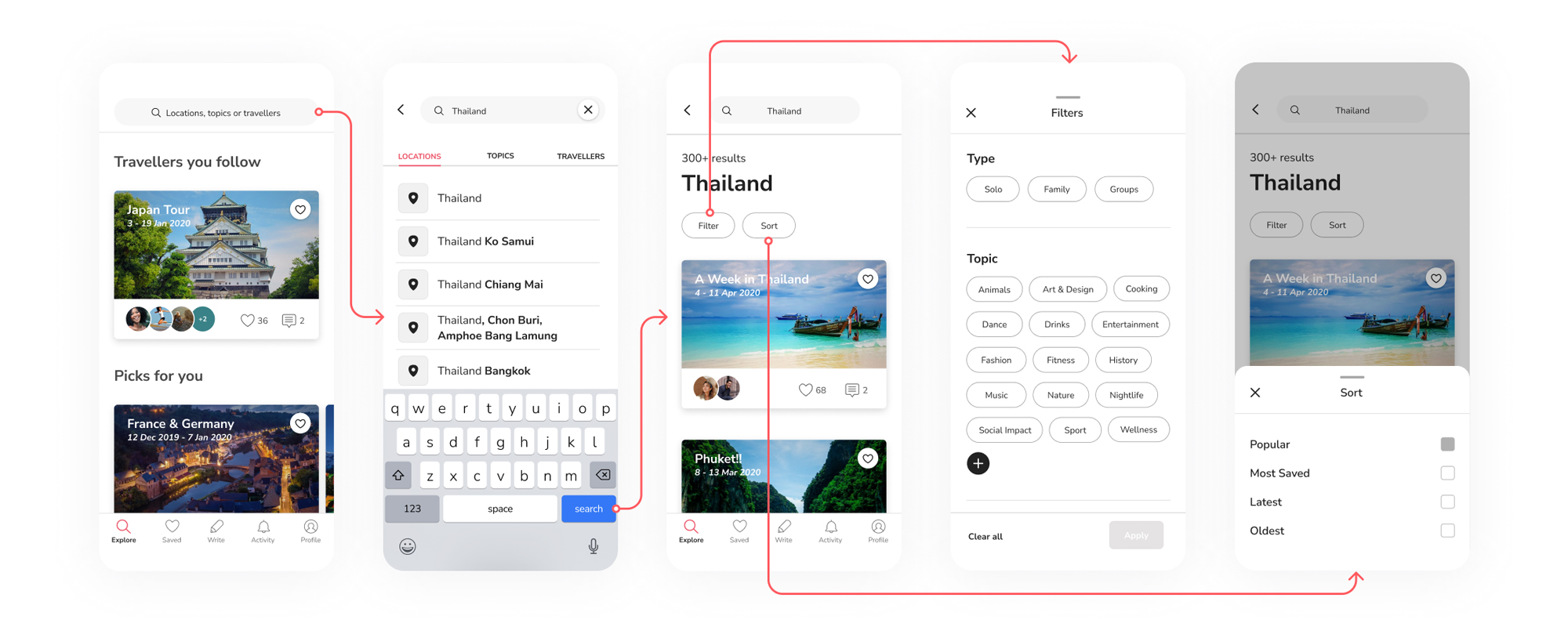
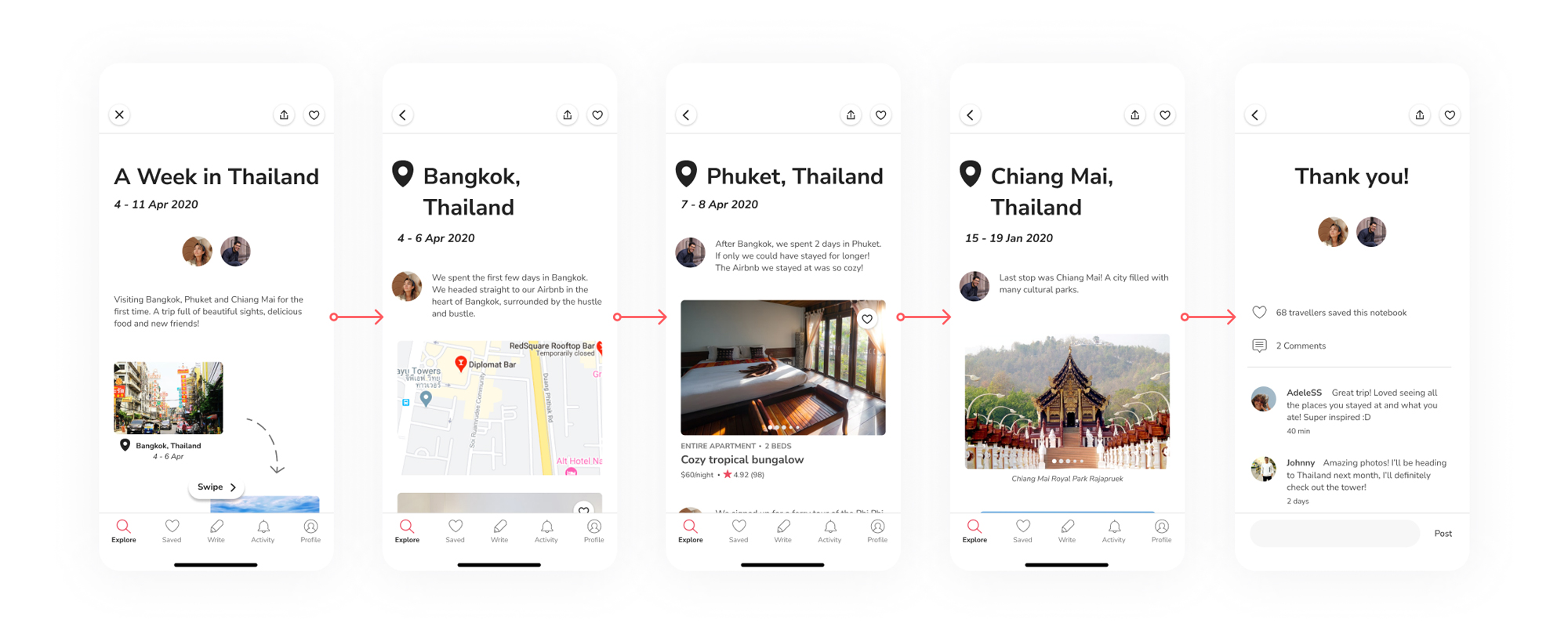

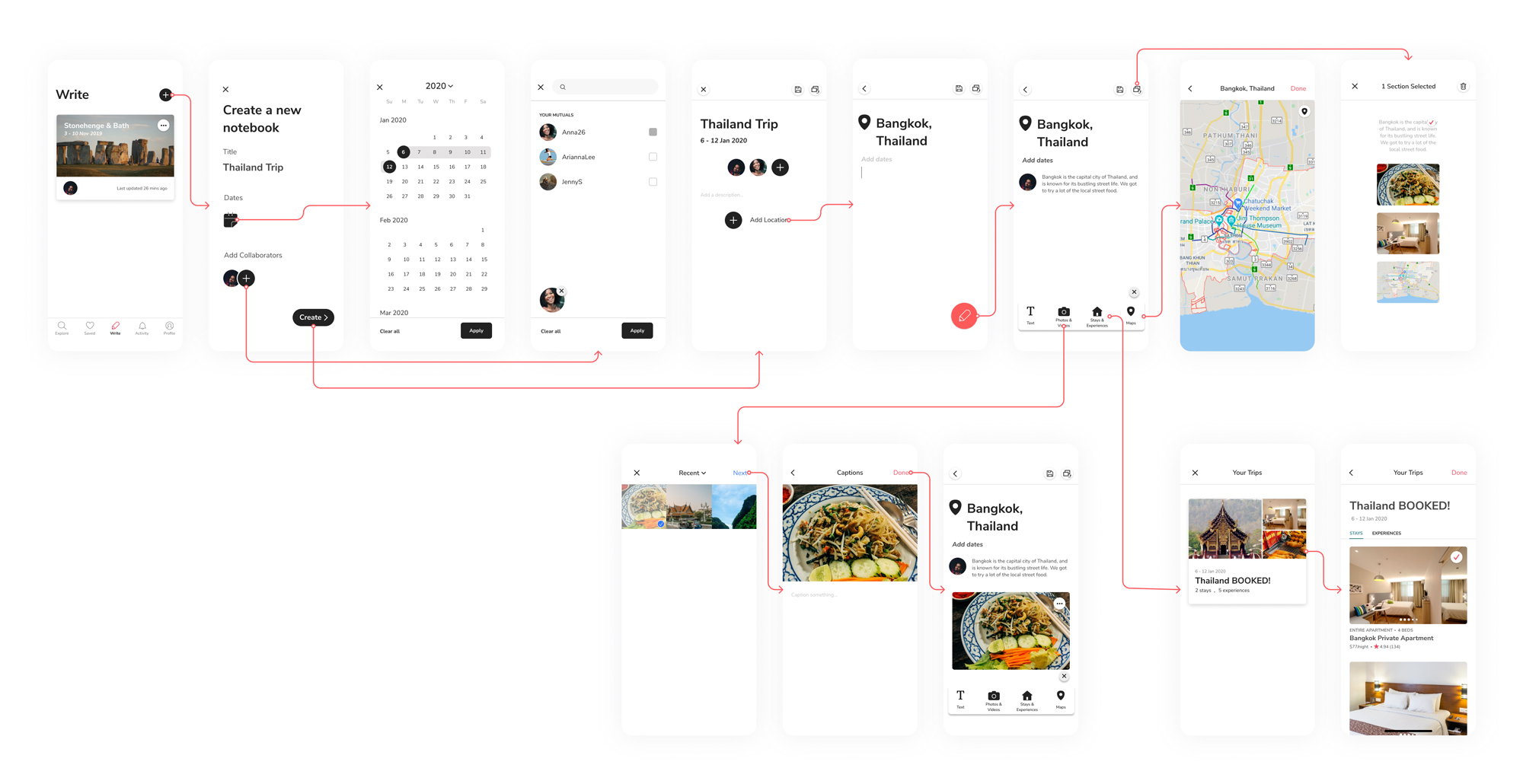
Feedback from user testing showed that this was an app they could see themselves using alongside the regular Airbnb app. They liked the sense of community and how easy it was to collate their photos and videos with detailed notes.
Retrospective
Although it felt a bit ironic that I was designing a travelling app during the COVID lockdown, I found the project to be fun and incredibly insightful! Designing this app taught me a few lessons: After I completed my final prototype, I finally allowed myself to view the winning prototypes from the Airbnb + Adobe Creative Jam competition. It was amazing to see how the same brief led to so many different results! Hopefully Airbnb will add a documenting feature to their current app or create an accompanying app in the near future.